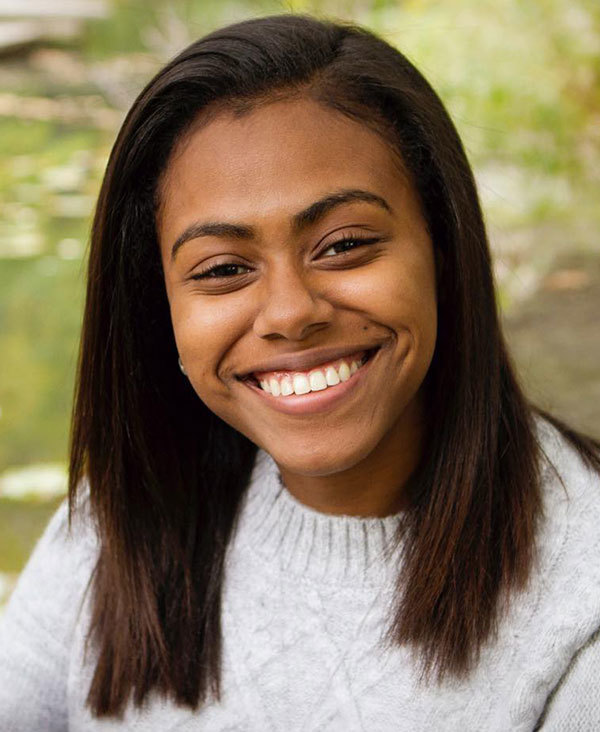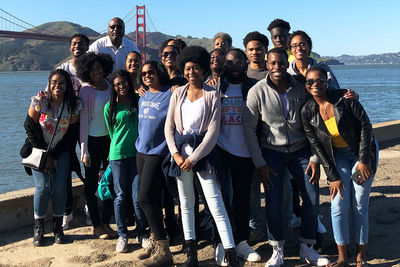
A single sociology class in her first year changed the course of Kiersten Hogan’s undergraduate career — and opened her eyes to the connections between social structures and health.
Now a senior, Hogan came to Notre Dame as an aspiring radiologist and took Social Psychology for Pre-health to fulfill a requirement — then ended up falling in love with the field.
“That class showed me the interdependent natures of science and society and made me realize that medical conditions are rarely just that — they’re a culmination of things,” she said. “Having a sociology background in medicine allows me to approach problems from both the scientific and social sides.”
While she remained confident about her sociology major, Hogan became unsure about a career in radiology during her sophomore year and dropped her pre-health supplementary major. She considered a career in business and began exploring classes in finance and real estate, alongside her sociology coursework.
But she kept coming back to the lessons she learned in that first class and, ultimately, returned to medicine — with a new focus on psychiatry.
“When you’re a doctor and someone comes in with high blood pressure, you need to understand why they have it. Or if somebody comes in with depression, you have to understand the social implications around it and if it’s stigmatized in their community. There are so many components other than just the hard scientific, medical side that a sociology degree will definitely help you understand.”
This year’s pandemic confirmed for her the importance of providing mental health support and services, particularly for minority communities.
“As I’ve gotten older and have been exposed to more things, especially with COVID-19, I have realized there are a lot of people out there like me who might need help but don’t know where to begin or don’t feel comfortable reaching out,” Hogan said. “I know it’s not going to be easy, but it’s going to be worth it, and this is what I want to do.”
Hogan decided to dedicate her senior year to pursuing minors in Africana studies and gender studies to better understand the populations she’d like to serve.
“I want to be a psychiatrist for people of color, especially, because mental health in communities of color isn’t often taken as seriously as it should,” she said. “If people can see someone like themselves in that position, they may feel more comfortable seeking help. I want to be that person.”

Her minors — and the extensive overlap between her three areas of study — are preparing her to serve a wide range of people, while also allowing her to focus on issues which disproportionately affect people of color.
“I’m learning all about gender, especially in the Black community,” Hogan said. “I’m learning about violence against trans women and the misinformation and stigmatization around it. If there are LGBT youth that I end up seeing in my career, I want to be able to use that knowledge to better serve them.”
While picking up two minors during senior year may seem daunting, Hogan has been encouraged by the support she has received from the faculty and staff.
“The directors of undergraduate studies in both programs really care about what they do, and they didn’t turn me away when I came senior year,” Hogan said. “They were actually really excited. I’m excited. It’s a chance to explore two new things that intersect with something I already love.”
After graduation, Hogan plans to take a year off to study independently and then take the MCAT and apply to medical schools. She feels well prepared, as the exam has recently increased its emphasis on social science.
“The MCAT evaluates whether you know what’s going on in the body, but also whether you understand what’s going on socially — which is just as important,” Hogan said. “When you’re a doctor and someone comes in with high blood pressure, you need to understand why they have it. Or if somebody comes in with depression, you have to understand the social implications around it and if it’s stigmatized in their community. There are so many components other than just the hard scientific, medical side that a sociology degree will definitely help you understand.”
Hogan started and ended her Notre Dame career intending to work in the field of medicine, but she is grateful for all the exploration the College of Arts & Letters enabled her to do in the in between.
“There is no blueprint to success,” Hogan said. “My experience in different areas of study has taught me there’s no one way to do it. You’re going to get out and you’re going to be fine. It’s fun, so enjoy the ride.”
“There is no blueprint to success. My experience in different areas of study has taught me there’s no one way to do it. You’re going to get out and you’re going to be fine. It’s fun, so enjoy the ride.”
Originally published by at al.nd.edu on December 17, 2020.